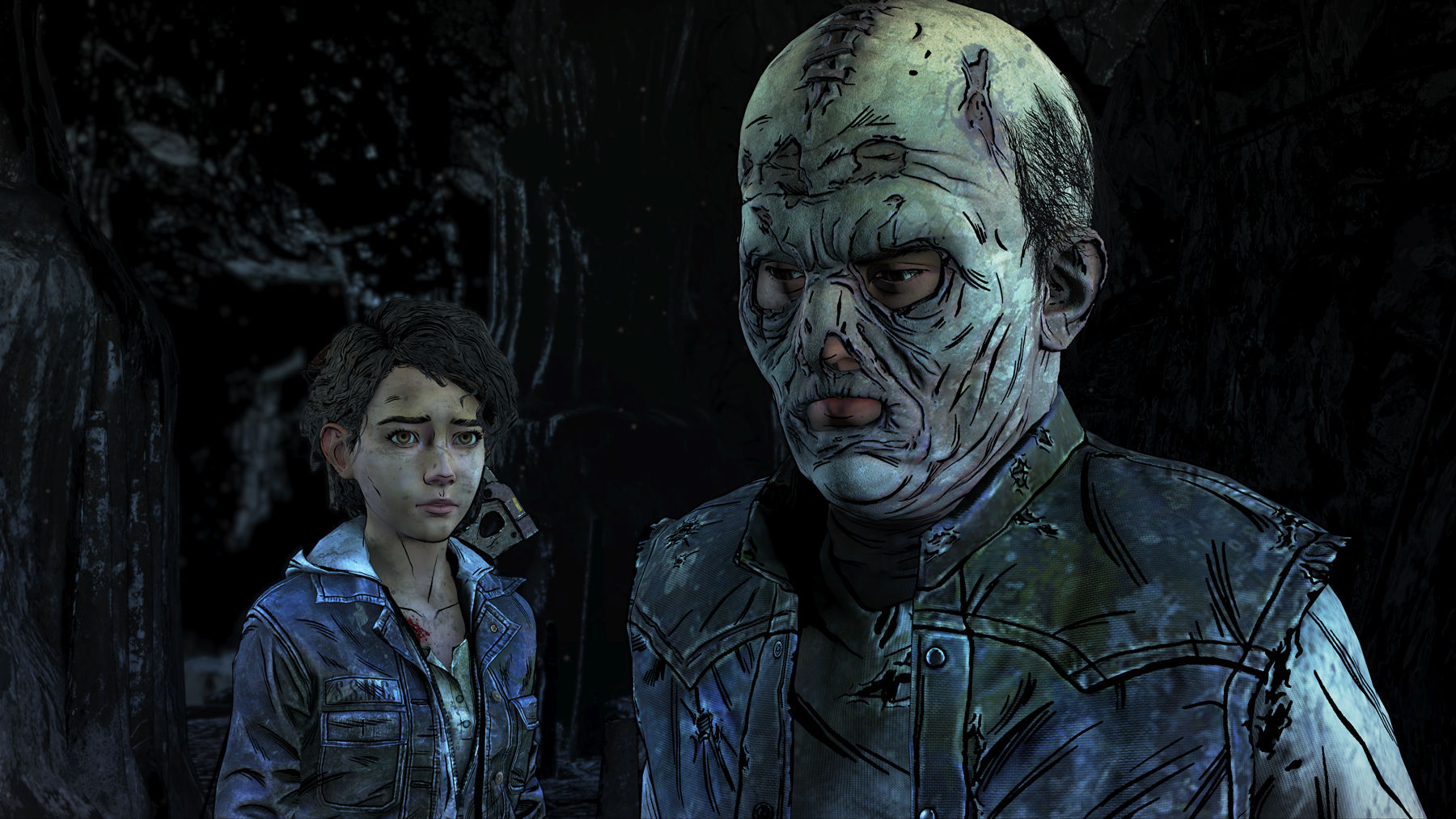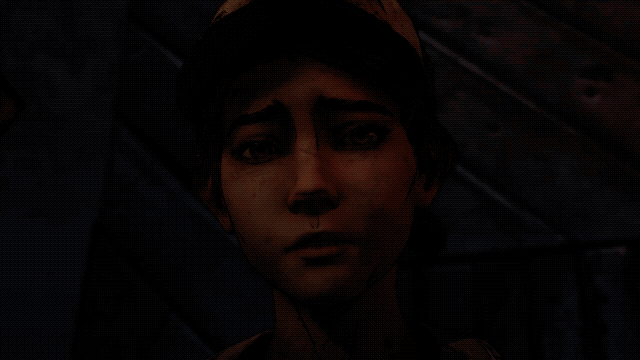“We need to go deeper.”
In my playthrough, at least, AJ never became a pacifist or an unhinged death machine. He once said that he “liked” killing someone, but that was about it. Clementine was clearly shocked but managed to explain the nuances of when and why it’s okay to kill someone in this strange new world. After that, he seemed to calm down and find his humanity again.
For now, it’s impossible to know what, if anything,was lost in the shift from Telltale to Skybound Games. The script and general story beats probably stayed the same — the achievement/trophy list and associated names were never altered, for instance. Individual scenes could have been condensed, however, or simplified to ease production in the latter stages.
Ultimately, I can only judge what I’ve had the chance to play. The episodes are polished but occasionally uneven, with stiff animations and a couple of jarring scene transitions. The structure of the finale is particularly odd, with a sudden climax at the end of the first act and an intriguing but ultimately unnecessary flashback in the middle. It’s a personal opinion, but I also wish the developers had saved Clementine’s conversation with Lee for the finale rather than episode three. The series started with Lee, and it would have been fitting to hear his voice closer to the end credits.
I won’t spoil the ending here. The final twist is controversial, though, and asks the player to believe an unlikely (yes, even by Walking Dead standards) chain of events. Regardless, I’m glad the ending exists for people like me who have stuck with the series through its many highs and lows. It’s not a perfect send-off, but it’s better than a half-finished season.

James is able to move and hide within ‘herds’ of walkers.

DevindraHardawar
Senior Editor
Telltale’s Walking Dead series was a narrative awakening for me when it debuted in 2012. I’ve been gaming since I was five, but I missed out on the heyday of PC adventure titles. So The Walking Dead‘s combination of well-written interactive storytelling, cinematic style and compelling player choices felt completely fresh and exciting. It was the stepping stone that Telltale’s quick ascent was built on — and something that inspired other developers to explore similar titles, like Square Enix’s excellentLife is Strange.
It’s just a shame the developer couldn’t keep up. When Telltale abruptly shut down last September, I was profoundly disgusted with how it treated its employees — so much so, that I didn’t have much interest in finishing The Walking Dead‘s final season. I loved the first episode, but I was perfectly fine with letting its cliffhanger be my last memory of the series. When Skybound announced it was willing to complete the season by bringing over some Telltale workers, I was moved by their devotion to Clementine. After being unceremoniously laid off, the former Telltale employees would be well within their rights to move on to other projects. But they stuck around to finish Clementine’s story properly — they were as committed to the character as I was.
Every decision I make for Clementine feels like something I’d tell my daughter in a few years.
Coming back to The Walking Dead after several months was a bit of a trip. I played the first episode a month before my daughter Sophia was born, and I found it to be an intriguing exploration of how you’d raise a child during the zombie apocalypse. Now, six months later, and fully committed to diaper-changing dad life, I’m looking at the series through fresh eyes. Every decision I make for Clementine feels like something I’d tell my daughter in a few years. I want her to be strong, but not cruel. Wise, but not a know-it-all. If I could manage it in this game, surely I could handle it in the real world.
More than ever, I just want Clementine and her young charge, AJ, to be happy. But this being The Walking Dead, that never lasts too long. I know how this works — I’m fully prepared for this season to break my heart eventually. I just hope Clementine finds some sort of peace.




